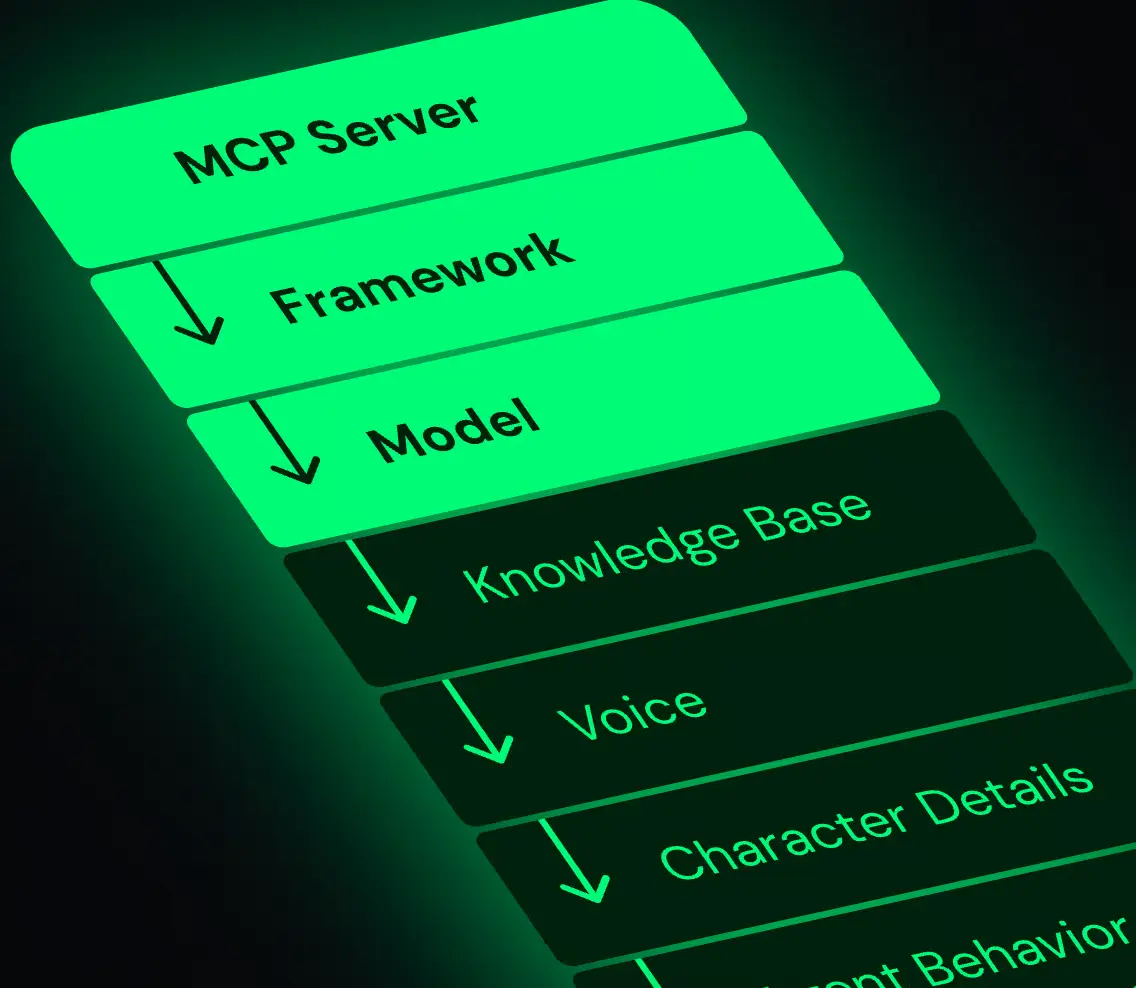Foundations
MCP
The Model Coordination Protocol (MCP) is a foundational component of our infrastructure. It orchestrates structured communication, fallback handling, and model routing across agents, endpoints, and services.
MCP acts as the control plane for deciding:
- Which models to run
- In what order
- Under what conditions
- How to post-process and validate their outputs

What is MCP?
MCP is a stateless, lightweight coordination layer that abstracts backend complexity while allowing developers fine-grained control over execution paths.
Key Responsibilities:
- Model selection based on input metadata and context
- Fallback orchestration between prioritized models
- Pre-/Post-processing hooks (e.g., prompt rewriting, schema validation)
- Cross-agent communication via structured message passing
Protocol Anatomy
Each MCP execution cycle includes:
1. Intent Dispatch
An agent or app sends a structured intent containing:
- Action type
- Input payload
- Execution context
2. Model Matching
Candidate models are scored using heuristics like:
- Confidence thresholds
- Current availability
- Latency cost
3. Execution Routing
MCP invokes the best-fit model. On failure or policy breach, it:
- Rewrites prompt (if needed)
- Falls back to alternate models
4. Post-Processing
MCP runs output through:
- Pydantic AI for type validation
- Format normalization
- Retry logic (if enabled)
Integration Points
MCP integrates with:
- Agent2Agent (A2A) Protocol – for agent-level handoffs
- TensorOne GraphQL API – to trigger endpoint calls
- Prompt Rewrite Engine – dynamic prompt transformation
- Model Metrics Collector – logs success/failure and latency metrics
Benefits of Using MCP
| Feature | Description |
|---|---|
| Reliability | Structured fallback for every run |
| Modularity | Swap models without touching orchestration logic |
| Security | Use hooks for sanitization and filtering |
| Observability | Detailed logs and execution metrics |
Example Use Case
A user query is routed by an agent:
"intent": "qa.classify",
"input": "What are the main risks of using synthetic datasets?",
"priority": ["gpt-4", "claude-3", "internal-benchmark"],
"max_retries": 2
MCP execution:
- Sends the query to gpt-4
- Validates output schema
- On error, retries with claude-3
- Responds to the agent with final output and metadata
Future Additions
We are extending MCP with:
- Context-aware model switching (based on dialogue memory)
- Semantic caching to skip redundant inferences
- Zero-trust execution policies
- Redundant endpoint load balancing